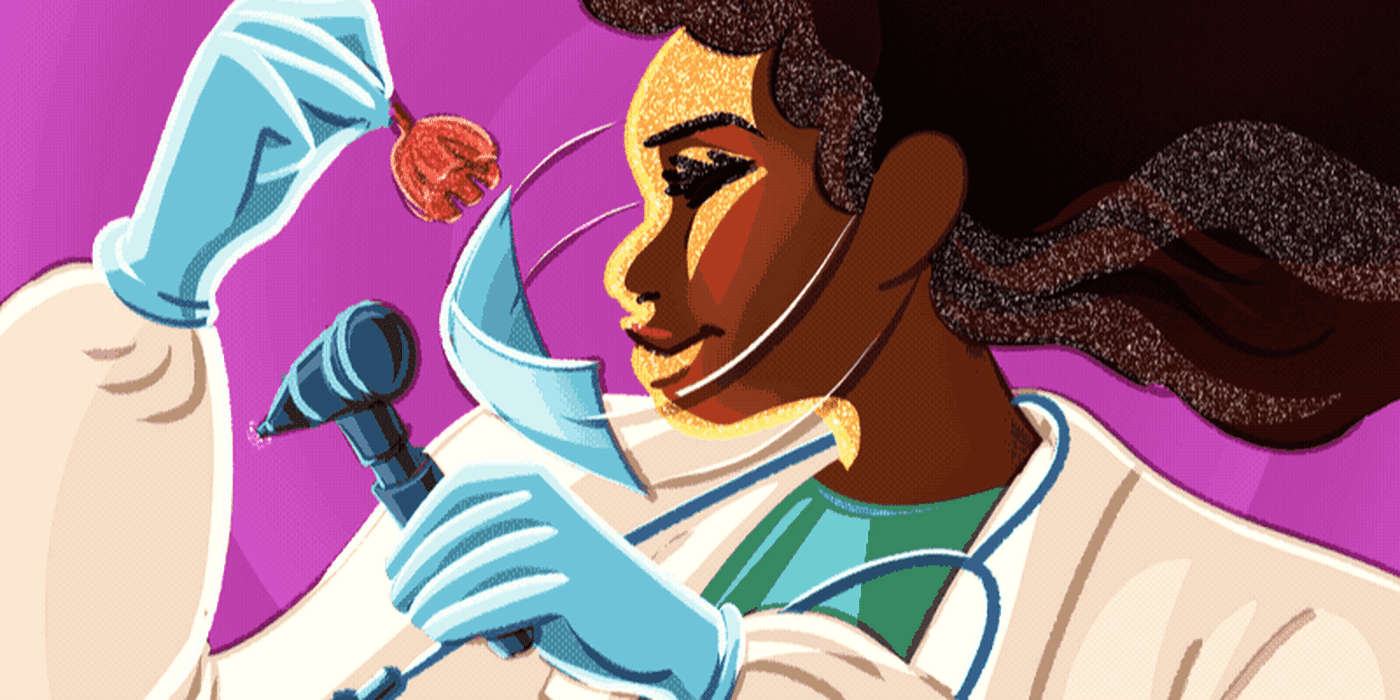Applying to residency programs is a pivotal milestone for medical students and the culmination of all the hard work, stress, sacrifices, losses, triumphs, and growth that go into each student’s medical school journey. It’s both an exciting and stressful time. When I was preparing my application for residency, I found myself constantly warding off intrusive thoughts about whether I belonged or was “good enough.” Although there were moments when I felt lost in the process, I had supportive mentors that guided me every step of the way. I also met some of the most inspiring co-applicants who ended up becoming my friends. Most importantly, I learned a lot about myself as a person, gathering insights that have stuck with me as I’ve continued on with my career. After reflecting on my psychiatry residency application cycle, the following advice sticks out as being most critical to the process.
1) Remember that you are the prize.
One of the biggest sources of stress for applicants is whether they are “competitive” or “unique” enough for a particular residency program or medical specialty. The most important piece of residency application advice I received as a third-year medical student came from a virtual Student National Medical Association psychiatry mentorship session with fourth-year students who had just matched into residency. As the session was wrapping up, one of the panelists told us to remember that we are the prize.
At first, the words caught me off guard. In my mind, the applicants are the ones hoping that an admissions committee will deem us worthy of their residency program — not the other way around. After all, we spend hours pouring our souls into our applications, striving to curate careful snapshots of our lives.
However, the more I thought about it, the more I realized that the student’s words were true: We each have something unique to offer the field of medicine, and we each have meaningful stories. In my case, growing up attending largely underfunded public city schools and witnessing the disparities in education, limited access to health care, and dearth of community resources helped cultivate my interest in community advocacy. As I became more engrossed in addressing social inequities, I found myself in a variety of jobs and extracurricular projects that ultimately led me to medical school.
In addition, my experience finding my place within predominantly white academic spaces, while simultaneously trying to celebrate my various identities as a first-generation American, as well as a Muslim and West African, heavily shaped how I viewed health care and the relationships I was able to build with my patients as a medical student. Some of the most rewarding moments of medical school came when I drew upon my diverse experiences to suggest alternative diagnoses or treatment plans for patients. Equally rewarding were more personal instances when a Black patient would spot me with my white coat and say, “Keep going honey, we need you” or give me a thumbs up and mouth the words “I am proud of you.” While many people say to keep your residency ERAS application to activities and experiences relevant to your intended specialty, it felt impossible and disingenuous for me to leave out the formative experiences in my life that led me to psychiatry. To that end, I believe that an underrated part of an applicant’s “uniqueness” is who they are as a person and how their experiences will positively impact their future patients and residency program.
Given the particularity of your life experience, and the fact that the chances that another applicant has gone through the same exact things as you is extremely slim, I urge you to allow yourself to interview the programs just as they are interviewing you. Residency programs often look for future residents that fit their mission, and you also have your own unique values and goals that not every program can satisfy in the same way. As I was researching residency programs to apply to, I paid particular attention to which programs had training opportunities that aligned with my social justice mission. Additionally, I thought about which programs would actually value the diverse experiences and varied skills that I bring to the field of psychiatry.
2) Seek out quality mentorship.
As I was putting together my application, I found it helpful to talk to other psychiatrists and psychiatry residents who had already made it through the residency match process. While each medical school has career advisors that can help you navigate the application process, actually talking to someone within your field is vital because every specialty is different. As one of only three Black medical students in my graduating class of 120 students, it was important for me to find mentors who looked like me and would be able to understand the unique challenges that minority medical students face. Moreover, only 2% of psychiatrists in the U.S. are Black, and it was important for me to learn from those who were paving the way for myself and future Black psychiatrists. I found my mentors by reaching out to psychiatrists who were doing advocacy work that aligned with my interests and sent out a bunch of emails (and a few direct messages on Twitter), but there are various tried and true ways to find mentors for yourself.
The first place I recommend you look is within the department of your medical school’s affiliated hospitals. If you are interested in a niche area, then reading academic papers or attending national conferences could be a great way to identify people in the field doing the work you seek to do. #MedTwitter, albeit controversial at times, is another great way to connect with residents and attendings across the country (and around the world).
In addition, don’t be afraid to look at the department websites of institutions that you are interested in and “cold email”/direct message people. Follow up if you don’t hear from them after a couple of weeks. Residents and attendings are often extremely busy and may miss your message or forget to respond the first time around. I was told by my current mentors that they appreciated that I followed up and was patient, yet persistent, in forming connections.
3) Budget wisely.
One of the things that took me by surprise about the fourth year of medical school was how much money I’d spend. As you are thinking about visiting clerkship/away rotation experiences, be sure to budget for fees for applications, medical screenings, background checks, and other administrative requirements, as well as housing, meals, transportation, and flights. The ERAS fee for applying to programs, the initial NRMP, and other associated fees for actually ranking programs can quickly add up.
One way to mitigate these costs is to conduct interviews virtually, if at all possible. Another way is to use the Residency Explorer budgeting calculator and create a master Excel spreadsheet to keep track of expenses. I also recommend saving a bit of money for summer moving expenses and the initial start of residency, when the first paycheck may be delayed. Several residents have advised me that saving around $5,000 or anticipating taking that much extra out in loans is a safe estimate (assuming you will be moving out of state and/or living alone).
4) Prioritize your mental wellness.
After successfully completing my required board exams, preclinical and clinical rotations, securing letters of recommendation, and finishing my personal statement, I thought that I would FINALLY feel relieved and relaxed for the remainder of the application process. However, once I paid my fees and submitted my application, I immediately started worrying about when I would get interviews, how many interviews I would get, what I would say in the interviews, etc. I quickly realized that not only was that level of anxiety unsustainable, it would also be detrimental to my interview season. I had worked too hard to let everything turn to chaos.
Like many would-be doctors with the stereotypical “Type A” personality, I found it relaxing to create Excel sheets and checklists for notes about programs, interview schedules, and more. Organizing the chaos of this time immediately relieved some of the stress. I also reminded myself that I am more than just a residency applicant, and used my extra fourth-year free time to get back into my hobbies. I started doing more creative writing, watched countless movies with friends, binged Netflix shows, and explored new restaurants for my food blogging aspirations. I also made a point of celebrating myself often throughout the cycle: I tried a new dessert at the end of every interview week and reminded myself of how far I’ve come.
And the same is true for you: You have accomplished so much to get to this point, and it is OK — and important — to celebrate yourself and your little wins along the way. It is your story, motivation, future goals, and experiences that make you uniquely qualified for residency.The field of medicine needs culturally competent, well-rounded, compassionate physicians and you are in a position to address that need.
What additional advice would you give residency applicants? Share your tips in the comments!
Abiba Salahou is a fourth-year medical student at Oakland University William Beaumont School of Medicine and member of the national Gold Humanism Honor Society. Abiba plans to serve diverse communities as a child and adolescent psychiatrist, and is passionate about restorative social justice, de-stigmatizing mental illness, creative writing, and food blogging. She tweets at @AbibaSalahouMed. Abiba is a 2022–2023 Doximity Op-Med Fellow.
Animation by April Brust







